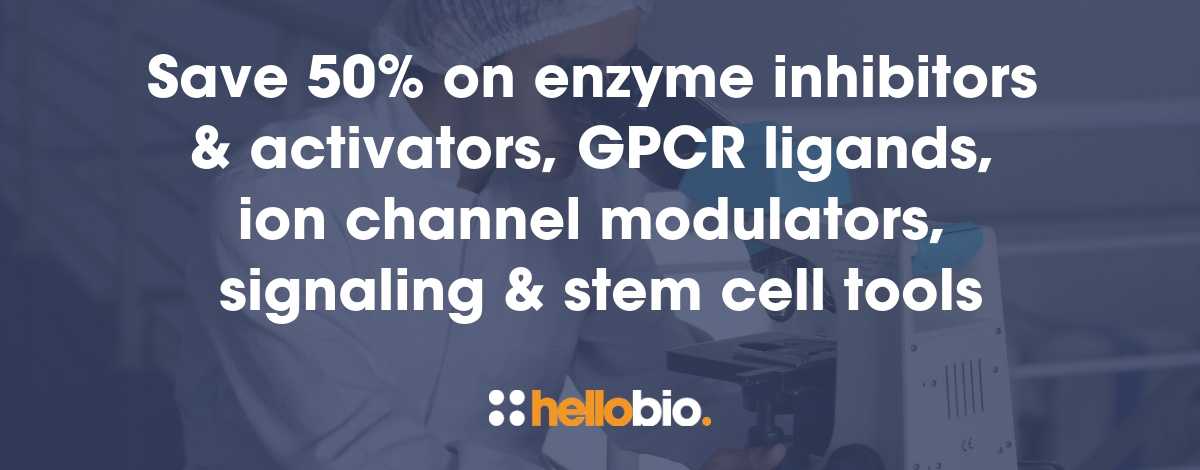Why strong leadership is vital for great science (and how to create it in your lab)
By Jaana Van Gastel
Last year, I was nominated by my lab for the Hello Bio Lab Heroes AwardsTM, which came as a wonderful surprise to me. I do a lot in our lab, not for the fame and glory of being named a ‘Lab Hero’, but because it has to be done and I kind of just assumed it was my job. After my nomination, I was contacted by Hello Bio: would I want to write a blog on how strong leadership is vital for great science to happen, and how to facilitate it in your lab (based on what my promotor had said in his nomination of me)? Heck yes, I wanted to! Of course, I worried that I’m not qualified enough to write this… but I’ve tried anyway, based on my personal experience and what I’ve learned.
When I started my PhD, I was the “baby” in the group, having to rely on a lot of expertise from my own mentor, postdoc, and promotor, for which I was, and still am, incredibly grateful. When my mentor ended her PhD, and as a postdoc found another new and exciting challenge, it came down to me to be the hub of information for new PhD students, technicians, and undergraduates. While it was never a role I saw myself in – teaching others, that is – it apparently fit me like a glove.
However, I kept taking on more and more: taking care of lab organization, cleanliness, training new PhD students, and guiding up to four undergraduate students... simultaneously. As you might expect, I soon reached and passed my limit. Being a senior PhD, while cool in its aspect of becoming a pro in what you’re doing, comes with the overwhelming pressure and stress of having to know – and sometimes do – everything. I had become, what we in Belgium sometimes call the “garbage PhD student.” Every time something had to be done, it slid into my inbox, waiting for me to fix it.
Nonetheless, I never let anyone see that this pressure was getting to me. I think this is one of the reasons I got my Lab Hero nomination. But this also made me realize that I should delegate and train others to pick up some of the slack. And as we are a team, they didn’t mind, and did so gladly.
Leadership
Being a leader is not something that’s easy. There is a very fine line between being a leader, a dictator, or a control freak. There are many things you need to take into account. Every person you supervise is different, which means they need a specific style of managing and respond to different types of leaders. I’ve found the best way to find out what works is:
- Talk to each person before you start managing them, and have an introductory conversation about what you expect and what they expect
- Make clear and understandable agreements that both of you will try to strive to keep
- Set a number of goals that you want to achieve together
- Meet up every week or every two weeks to discuss results, but also to discuss performance, both strong points and weak points. This might surprise you, but I do this in both ways. That means I can learn myself, as well as adapt to my student.
Remember, while “tough love” might work for some people, the best reactions I have received came from constructive criticism. Even if you know something went wrong, never go and blame the person you’re responsible for managing. Give them a chance to come to you. If they don’t, gently let them know that everyone makes mistakes – it’s the way we learn – but it is best to get to a solution together. This is one of the agreements I usually make. So far, this has made every student very comfortable, and as a result mistakes are made less often.
It’s also important to know that as a supervisor, as a leader, you are responsible for the people working for you. Not only in training them, but also in taking responsibility for their mistakes, and in supporting them if something does go wrong.
Delegate
Personally, I have had some issues with letting go of control. I am hyper-organized and plan everything, and I have my own system for everything. However, as I mentioned previously, we are not made to do EVERYTHING. Every person in a research group has the ability to play a larger part in a team, rather than just performing their own work. So, we came up with several systems to make lab organization a team effort:
- A rotation system. Every week, someone else would have to take care of lab cleanliness and orders. This meant each person would have to do this just once every month.
- Next, we labeled every buffer with a protocol to make it – making it easy for everyone to make them when they started to get low.
- While we all get assigned our students personally, we take care of them together. As most of us know, having new students with whom you need to teach everything from scratch every couple of months can feel tiresome. So, we made it easier. Every time a protocol was performed, all the students would follow. This cut the “learning period” down immensely.
Be honest
Something I didn’t realize until after I had my first student is that honesty works in both directions. They need to be honest if and when an experiment fails, or if something goes wrong in the protocol, but I need to be honest about workload.
Supervising one or more students is a lot of work and a lot of responsibility, and this can come with a lot of stress. When I supervised students at first, I tried to pretend to be all-knowing and immune to stress. But I quickly realized that students responded better when they realized that, I too, was only human. This also made it easier to delegate.
Here are my biggest lessons:
- Admit to yourself that you can’t handle everything and remember that you are allowed to give yourself a break once in a while
- Take the time in their first week to teach your students everything correctly. Make sure they write it down exactly and bring their protocol book everywhere. This gives the best results and minimizes the time you need to spend correcting your students.
- In that first week, go through the protocols together several times. Let them go through the motions without actually doing the experiments. This means they will know where all the items can be found, and what they need. This way, they will be independent a lot faster.
- Tell your students that while you’re always there to help out, independence is very important. You can’t be there every minute to answer a question, and “Google knows.” Support them in learning to do their own research. However, always set aside some time during each week to go through everything, allowing them time to ask the questions they couldn’t find an answer to.
I believe the most important thing I have learned is that everyone has the ability to become a leader – but being a good one is not so easy. Of course, I’m not saying I have all the answers. That’s the point, nobody really does. The most important thing is to keep learning from the mistakes you make. Realize that you are not perfect, and that nobody is. It is perfectly acceptable not to have all the answers, and to forget certain things. Even as a leader it is important to own up to that, and let everyone see it.
While the title of this blog includes the phrase "strong leadership", this is sometimes mistaken for being tough, and pushing people. However, I believe strength comes from something else entirely: your weaknesses, especially if you dare not to hide them.
___________________________________________________
Jaana van Gastel completed her Master’s in Biomedical Sciences with Honors at the University of Antwerp (BE). After graduating, she started a PhD in the Receptor Biology Lab of Professor Dr. Stuart Maudsley concerning GPCRs in age-related disorders. In addition, Jaana has worked at the Medical University of South Carolina (USA) with Dr. Louis M. Luttrell during a research internship and presented her work at the annual Center for Proteomics Meeting (2016), and the annual American society for Biochemistry and Molecular Biology Meeting (2018). She has also helped organize the VIBes 2017 conference and has published 10 papers during her three short years as PhD student.
___________________________________________________
If you enjoyed this...
If you enjoyed reading this article, why not check out the other resources available on our blog. One of the things we’re most passionate about is supporting early career life scientists and PhD students. We know how tough it is - so we hope you find these helpful!
Support for PhD students & early career scientists
Click below to view our of essential guides and articles includes to support PhD students & early career life scientists:
Travel grants
Every month we give away $500 to PhD students and Postdocs so that they can attend a scientific conference - click below to find out more:
Wellbeing for scientists
Click below for our resources to help improve your wellbeing:
Technical resources
Try our Molarity Calculator: a quick and easy way to calculate the mass, volume or concentration required for making a solution.
Try our Dilution Calculator: an easy way to work out how to dilute stock solutions of known concentrations
Click below to see our Mini-reviews, Pathway Posters & Product Guides: a set of technical resources to answer your questions on a wide range of topics and to help you get started quickly.
And - when you get to the stage of planning your experiments, don't forget that we offer a range of agonists, antagonists, inhibitors, activators, antibodies and fluorescent tools at up to half the price of other suppliers - click below to see how we compare with other suppliers:
Advice from your fellow scientists
Click below to read advice from other scientists:




















